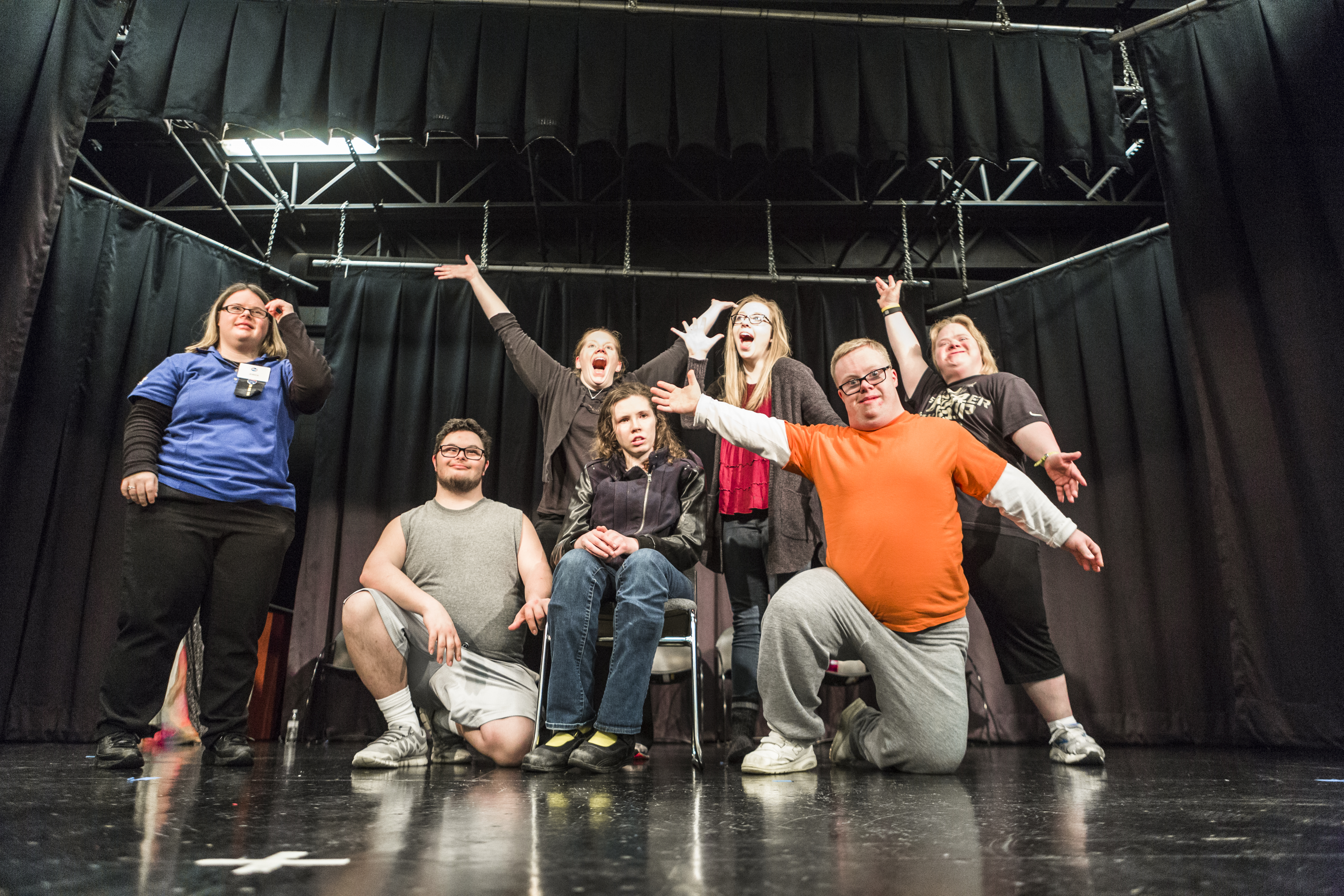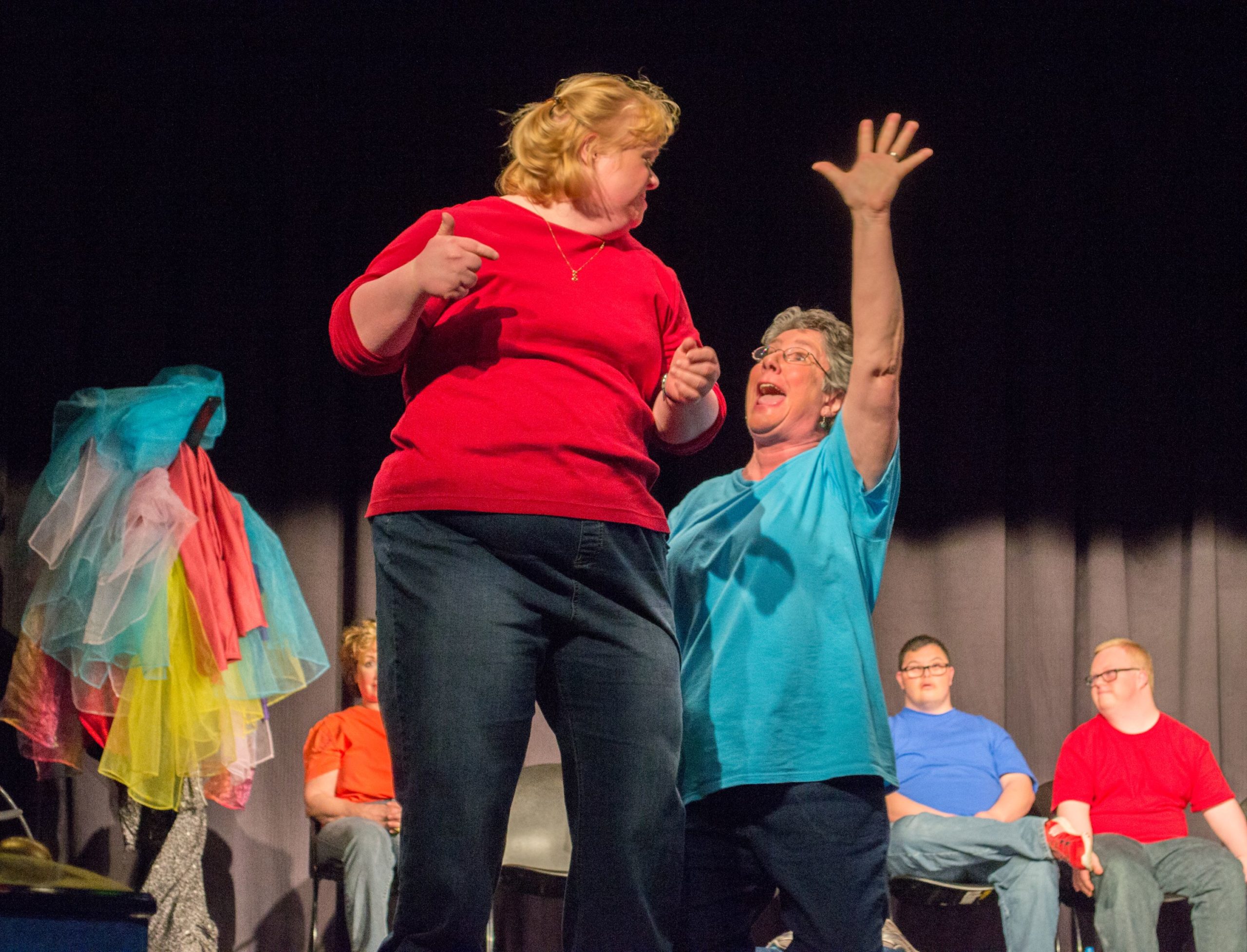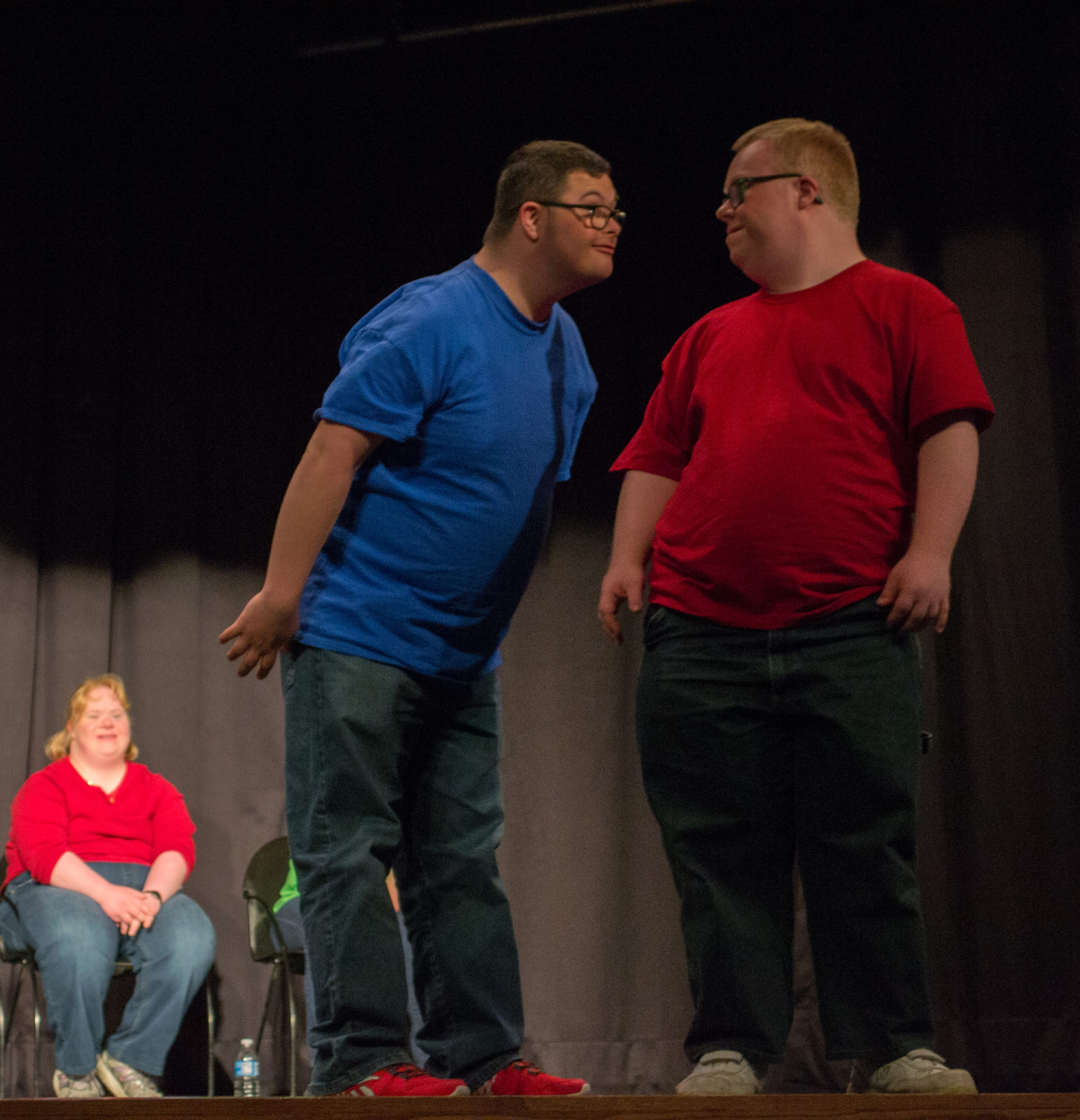
A Hero’s Heart
Inclusive theatre troupe performs third annual Barrier-Free Theatre performance in celebration of Developmental Disability Awareness Month
In high school, I thought I had developed a whole new profession. I named the field “Therapeutic Theatre.” Amidst the struggle to decide which college to attend, what major to declare, and what career to pursue, there was one thing I knew for sure: I was passionate about a theatre where all people could perform without stigma or stereotypes.
Thankfully I found not only a major that allowed me to pursue my passion – Recreational Therapy, who knew therapeutic theatre already existed?! – but a job as well. With Carmel Clay Parks & Recreation I spent five years as the Adaptive Program Supervisor. While that role included planning a wide variety of programs for individuals with disabilities – sports, arts, nature and more – I was also able to implement theatre-based programs for our participants.
Bringing Inclusive Theatre to Carmel Clay Parks
In 2015 we started The Roundabout Playback Troupe, which at the time was the only inclusive playback troupe in the United States. Our troupe performed several times at the Monon Community Center, in our parks, and out in the community between 2015-2018. Our inclusive troupe also performed a Shakespeare in the Park production in August 2017. After our Shakespeare in the Park experience many actors expressed interest in writing and performing their own show. I was thrilled to introduce Barrier-Free Theatre to our participants.
 Barrier-Free Theatre is a world-renowned process developed by one of my mentors, Sally Bailey. Bailey developed Barrier-Free Theatre as a process where an inclusive group of actors, with and without disabilities, write a theatre show around a systemic issue. They explore the issue through theatre games, improv and role-play. To create a safe space to explore the issue participants develop a fictional setting. Then they develop roles they want to explore to either expand their role repertoire or create more confidence in a specific role they already play in their real life. For example, this could be a role like friend, student or partner. Through the process they create and perform a fictional show for the community, generally during Disability Awareness Month.
Barrier-Free Theatre is a world-renowned process developed by one of my mentors, Sally Bailey. Bailey developed Barrier-Free Theatre as a process where an inclusive group of actors, with and without disabilities, write a theatre show around a systemic issue. They explore the issue through theatre games, improv and role-play. To create a safe space to explore the issue participants develop a fictional setting. Then they develop roles they want to explore to either expand their role repertoire or create more confidence in a specific role they already play in their real life. For example, this could be a role like friend, student or partner. Through the process they create and perform a fictional show for the community, generally during Disability Awareness Month.
Performing Virtually
At Carmel Clay Parks & Recreation, this is our third year writing and performing our own show. This year is unique in that we originally planned to perform this show in March 2020. But as they say, the best-laid plans!
Due to COVID-19 we pushed the performance to 2021 in an effort to keep our actors and audience safe. Over the last year, we have continued to work on developing the show. This year’s performance will take place virtually—so you can join us from near and far! Our actors will also be performing virtually.
This year looks very different for all of us, but we are thrilled to bring this story to life. In August 2020, we welcomed Sarah Fenster who is also a Drama Therapist as this year’s director. It has been fun to support Sarah and be the Assistant Director. I have been able to see the show in a new light.
The Barrier-Free Process
Each year we’ve explored difficult systemic issues. For this year’s performance, our actors brought up the issues of being bullied because of a disability. Many shared experiences of people making snap judgements about them because of their disability. Through this discussion, we decided to explore the journey of finding yourself and your value. Barrier-Free Theatre supports exploring these difficult topics as a group through levity, comedy, and, because it’s set in a fictional world, distance.
 Barrier-Free Theatre follows a drama therapy theory called The Five Stages of Drama Therapy by Dr. Renee Emunah. The five stages are dramatic play, scene work, role play, culminating enactment, and dramatic ritual. This process helps participants dive deep into really hard issues and concerns.
Barrier-Free Theatre follows a drama therapy theory called The Five Stages of Drama Therapy by Dr. Renee Emunah. The five stages are dramatic play, scene work, role play, culminating enactment, and dramatic ritual. This process helps participants dive deep into really hard issues and concerns.
We start our process in August 2019 with dramatic play. We play games, ice breakers and team building activities that help us create trust, openness and space for growth. Then in September we explore a systemic issue. Actors bring ideas and through games we find which one is the most important to the group. Then we create a location that gives us distance to explore this topic. As we develop scenes in the fictional setting we discover new issues and gain understanding of the show’s direction.
In October 2019 the actors decide what role they will play. We encourage them to pick a role that will help them expand their empathy and understanding of others or a role they are currently discovering about themselves. For example, one year an actor wanted to be a “mentor” because he had just gotten married. He felt that he had many mentors and he wanted to mentor others. Once the roles are decided we begin writing the story through improv and role-play. The script is written in December and we start rehearsing in January. Once we perform the show we are in the cultivating enactment stage, which is the climax of the process. After our performance we have a cast party and debrief session which is our dramatic ritual. Long after the show is over the actors utilize what they learned in their relationships.
Discovering our Inner Hero
During the development of A Hero’s Heart the actors brought up the idea that we are all heroes of our own story and we all go on a journey to find ourselves. This reminded me of Hero’s Journey, a classic story structure developed by Joseph Campbell that involves a hero or protagonist who goes on an adventure and then comes home transformed by the experience.
The steps of the Hero’s Journey are:
1. The Ordinary World
2. The Decision
3. The Call to Adventure
4. The Refusal
5. Meeting the Mentor
6. The First Threshold
7. Tests, Enemies and Allies
8. The Innermost Cave
9. The Ordeal
10. The Return
Our cast decided to utilize Hero’s Journey as an outline so we structured our sessions on these topics to create our script. Our show’s protagonist, named Brenda, represents all of us on this journey. She has characteristics that could describe all of us. Through Brenda’s adventure we explore self-identity, exploration and acceptance.
Through this process over the last two years, I have learned a lot through Brenda’s journey right alongside our cast. We all make quick judgement about others. It is amazing that each year I find myself growing in new and deeper truths. I’m so excited to share this beautiful journey with all of you. I hope you’ll enjoy one of our performances later this month. You can buy tickets to the March 6 or March 7 show online or at the Monon Community Center. All proceeds from ticket sales support our adaptive programming.
